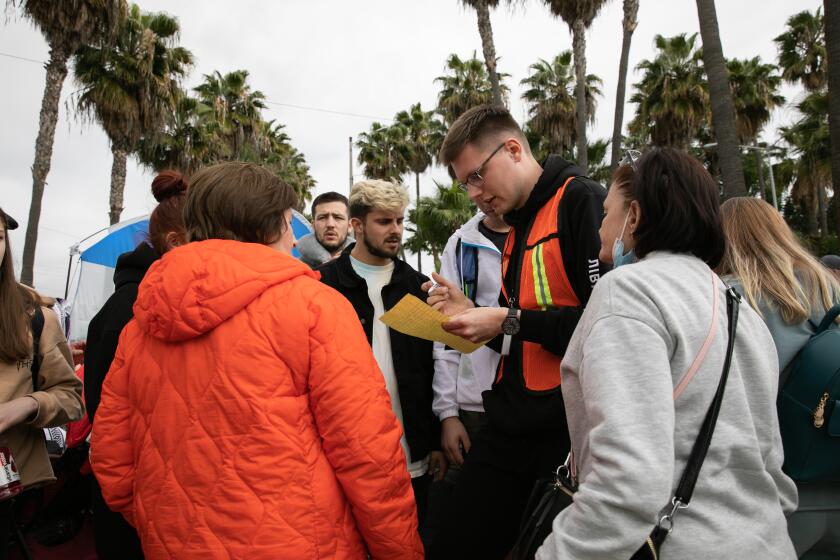Chula Vista church becomes a way station for Ukrainians seeking refuge in the U.S.
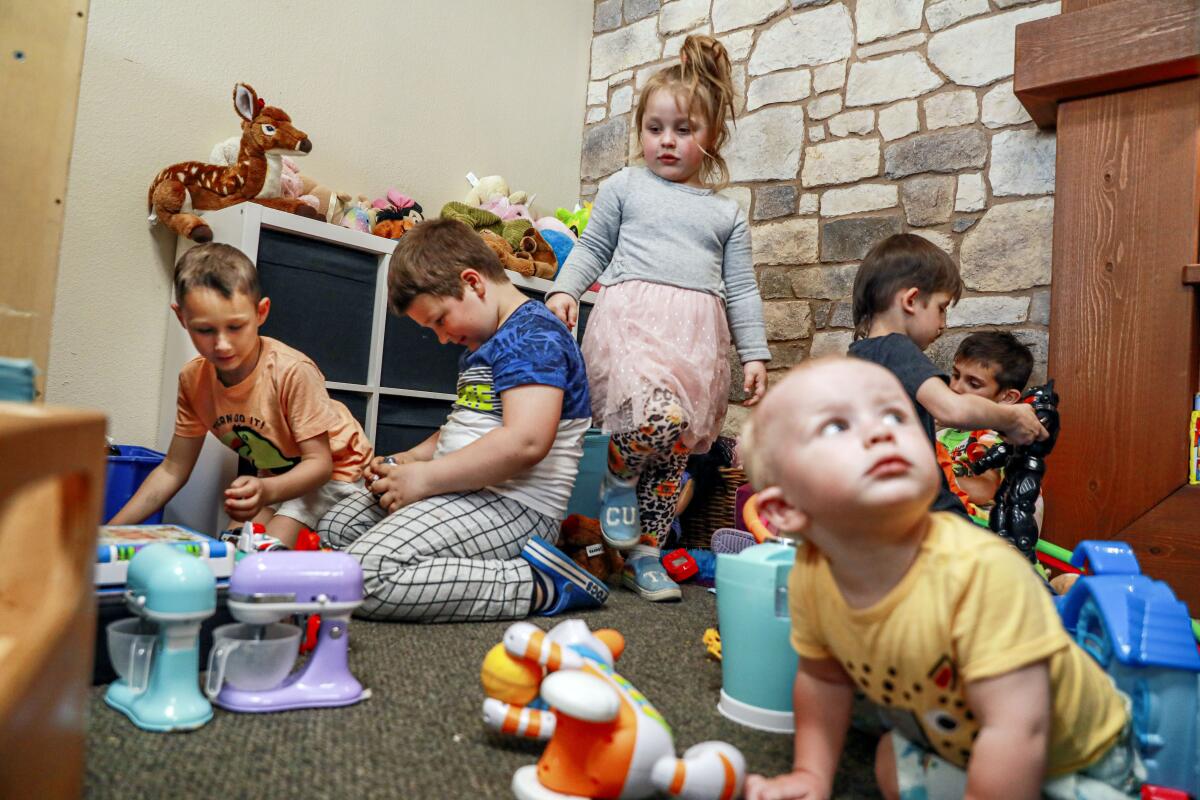
Calvary Chapel in Chula Vista offers food and shelter for Ukrainian refugees arriving in the U.S. from Mexico.
- Share via
SAN DIEGO — For the past two weeks, Calvary Chapel in Chula Vista has been a way station for people fleeing the war in Ukraine.
They show up at all hours, a couple hundred daily, after long journeys that have left them exhausted.
Exhausted, but safe.
This story is for subscribers
We offer subscribers exclusive access to our best journalism.
Thank you for your support.
“We’ve been living in fear,” Olga Slonovska said after she arrived with her family. “Now we can relax.”
The evacuees stay at the church for a day or two before moving on to live with family or friends already in the U.S. They are part of what the federal government says could be 100,000 Ukrainians allowed into the country because of the war.
While at the church, they have access to showers, food, the internet, inflatable mattresses for naps and other services. There is a play area for small children, a charging station for phones and laptops, a rack with donated clothes. Signs taped to walls provide guidance in handwritten Ukrainian.
Volunteer translators answer questions and volunteer travel agents help them book flights to their next stops. Volunteer drivers take them to the airport.
“We’ll do it for as long as we can,” said Phil Metzger, lead pastor at the Otay Ranch church.
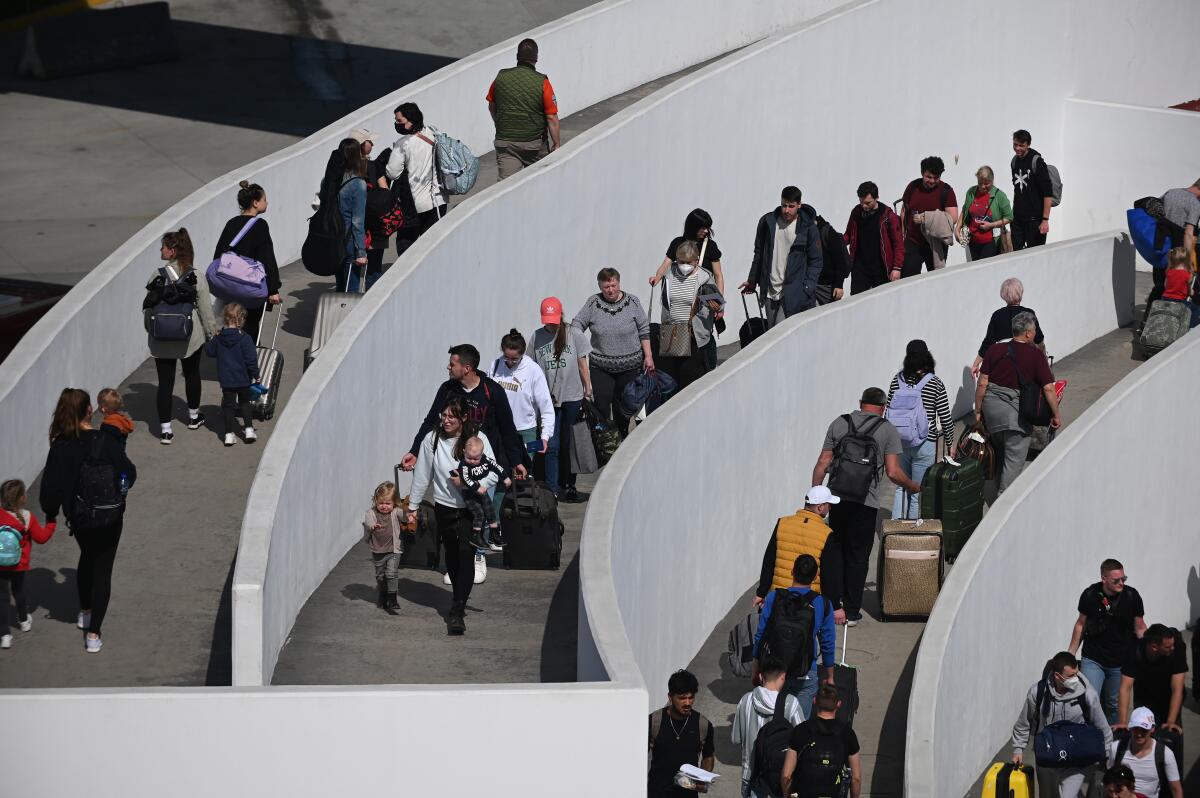
Repurposed classrooms
He was a missionary in Eastern Europe for 25 years, familiar with Ukraine because Calvary has a couple dozen churches there. When the war broke out, he said, church leaders decided to help — first with evacuations and medicine deliveries there, and then with a temporary shelter here.
His church’s proximity to the border — about 9 miles — made it a good fit for a way station. After the Ukrainians pass through U.S. customs, they are brought in cars and vans to Calvary Chapel, which repurposed some of its school classrooms into spaces for the newcomers.
At first, Metzger said, the church thought it might be helping 40 or 50 people a day. It’s been three or four times that: single women, mothers with children, families of six, older couples. By the end of last week, Calvary had assisted almost 2,000 people, with several thousand more waiting in Tijuana.
“For us, it’s unsustainable,” Metzger said as he watched a swirl of activity around him at the church. “We have the heart for this kind of work, but not the skills.”
Near the San Ysidro Port of Entry, volunteers are working around the clock to support Ukrainian families and queue them for Customs and Border Protection to process
His phone buzzed regularly with texts about new arrivals. “The federal government really needs to take over,” he said. “They invited them.”
Other local churches and nonprofit organizations such as Jewish Family Services have been helping, and a system is emerging that steers evacuees to San Diego International Airport for their connecting flights sooner, easing the need for temporary shelter. Late last month, the county said it was gearing up to welcome refugees whose U.S. destination is here.
Metzger said he expects it will be “days, not weeks” before Calvary’s services are no longer needed.
In the meantime, families like the Slonovskas arrive, suitcases in hand, exhausted.
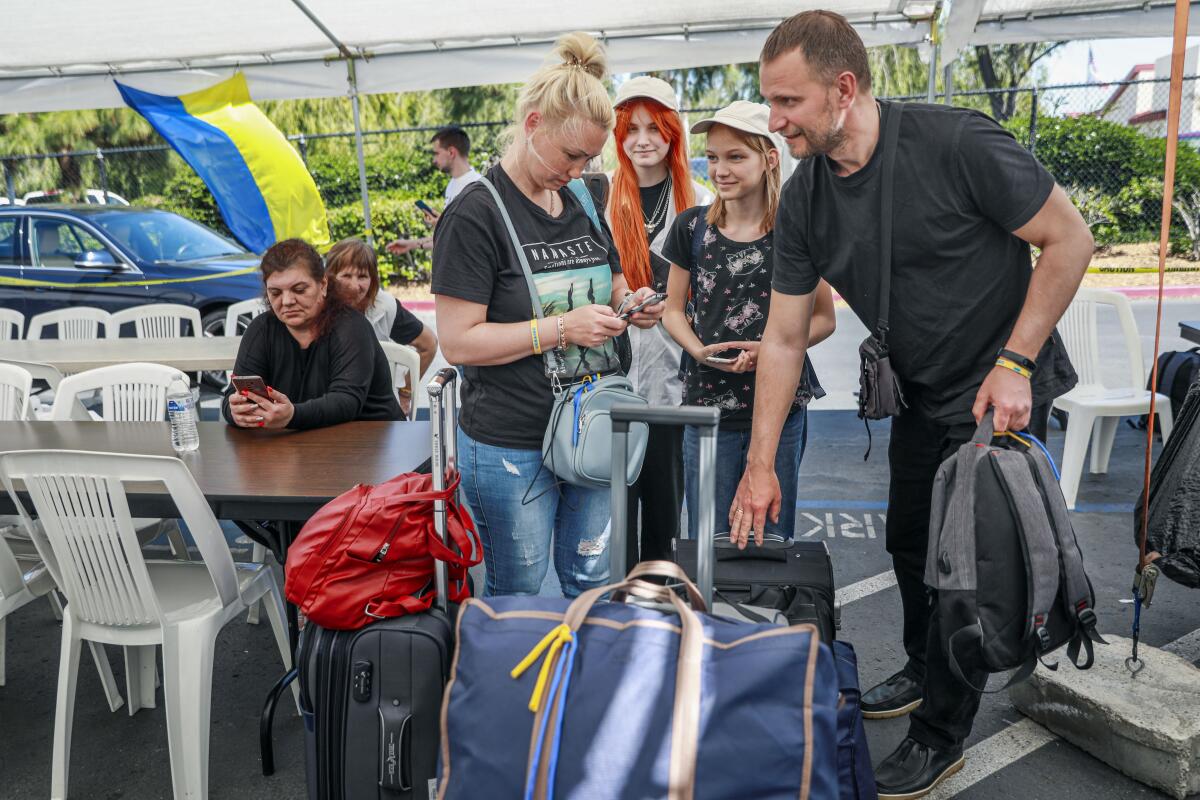
Colorado-bound
They are from Kharkiv, Ukraine’s second-largest city. It’s been shelled heavily during the Russian invasion. The Slonovskas — grandmother, parents, two girls — fled first to Hungary, then to Paris. They flew to Mexico City, then to Tijuana, where they spent three nights before they were allowed to cross.
The journey took more than two weeks.
“Finally we feel safe,” Olga Slonovska said Thursday morning. Her family sat at a table outside the church, under an awning set up in a parking lot. They were interviewed with the help of a Russian translator.
Olga is a hairdresser in Ukraine. Her husband, Ronan, works in I.T. Their daughters Darina and Lilia are 18 and 12, respectively.
They have family in Colorado, which is where they are headed next. They will be staying with a relative they haven’t seen in seven years.
Olga said they are planning to return to Kharkiv when it’s safe, an apparently common expectation among the evacuees who have come to the church. “I’m not hearing anybody talk about starting a new life in America,” Metzger said.
The Slonovskas said they were surprised to hear about what Calvary Chapel was doing, and grateful. Soon the girls were inside the shelter, exploring a room where travel toiletries were available. Their parents went into another room where food was arranged: bread, apples, ramen, cold cereal, bananas, oatmeal, tangerines.
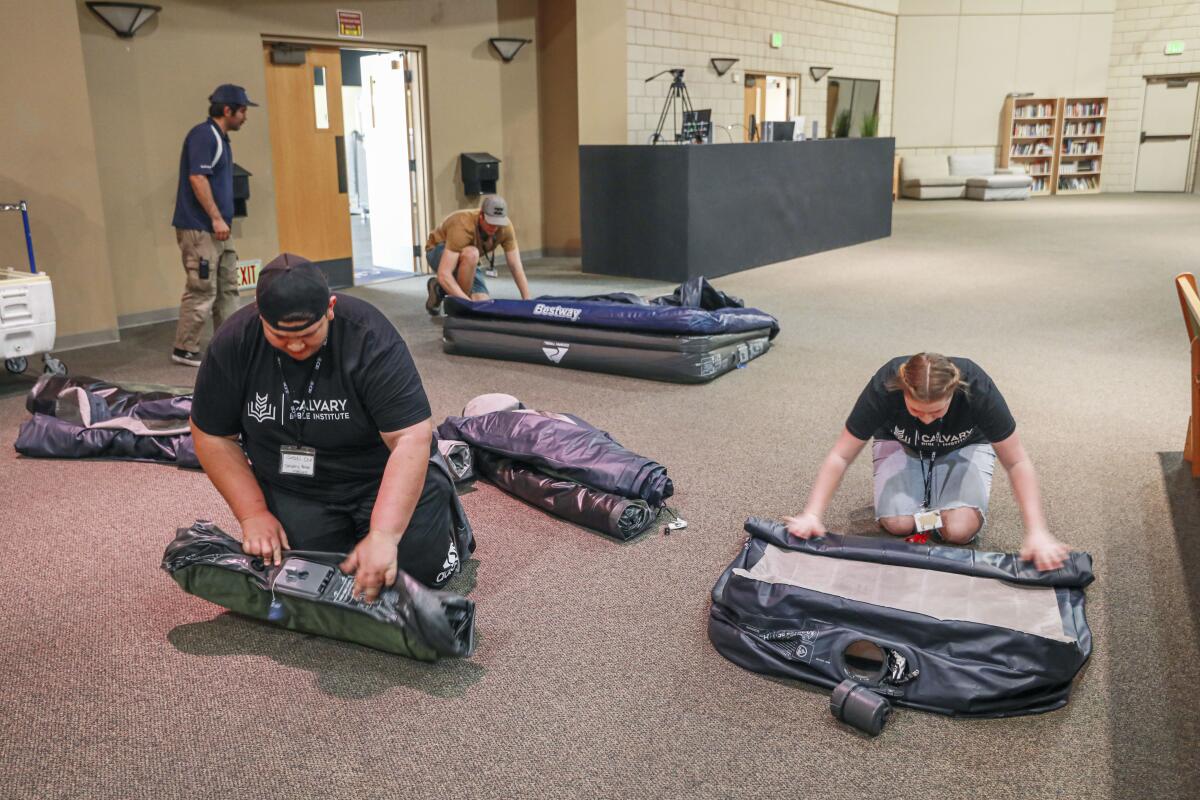
The work is personal
Some of the supplies have come via donations from San Diegans who drive up to the church and drop off the items. “I’m just happy to help,” one woman said after delivering a crate of bottled water. Others have opened their homes as temporary places for the Ukrainians to sleep.
The volunteers have come from all over, too, and for some of them the work is personal. Lena Ryzhak, who lives in Rancho Bernardo, came here as a student from Ukraine 20 years ago and stayed. Her sister Anna still resides in Ukraine, in Kyiv.
Or did, until recently. Anna, too, has fled the war, traveling on train and on foot, waiting for hours without food and water to cross the border into Poland, and eventually making her way to Switzerland.
“I couldn’t sleep, all those days, worried about whether she was safe,” Ryzhak said. “I’m so thankful she made it.”
She was at Calvary Chapel on Thursday, working as a translator, doing what she can, she said, to pay it forward.
Her sister’s journey isn’t over. She has a visa to fly out of Switzerland next week, to San Diego, where Ryzhak will be waiting with a place to stay.
According to the United Nations, more than 10 million Ukrainians have been displaced by the war, including 4.3 million who have left for other countries.
More to Read
Sign up for Essential California
The most important California stories and recommendations in your inbox every morning.
You may occasionally receive promotional content from the Los Angeles Times.
